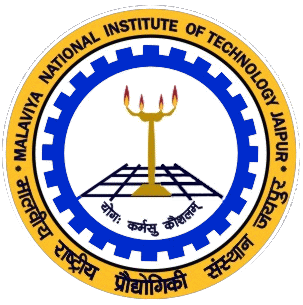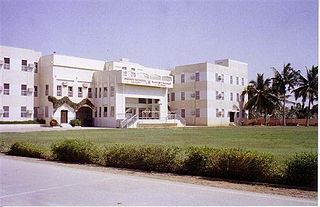Secondary School Certificate (SSC), Secondary School Leaving Certificate (SSLC) or Matriculation examination, is a public examination in Bangladesh, India, Pakistan, Nepal and Maldives conducted by educational boards for the successful completion of the secondary education exam in these countries. Students of 10th grade/class ten can appear in these. It is equivalent to the year 10 of the GCSE in England or the first two years of high schools in United States.
The Joint Entrance Examination – Advanced (JEE-Advanced) is an academic examination held annually in India that tests the skills and knowledge of the applicants in physics, chemistry and mathematics. It is organised by one of the seven zonal Indian Institutes of Technology (IITs): IIT Roorkee, IIT Kharagpur, IIT Delhi, IIT Kanpur, IIT Bombay, IIT Madras, and IIT Guwahati, under the guidance of the Joint Admission Board (JAB) on a round-robin rotation pattern for the qualifying candidates of the Joint Entrance Examination – Main(exempted for foreign nationals and candidates who have secured OCI/PIO cards on or after 04-03-2021). It used to be the sole prerequisite for admission to the IITs' bachelor's programs before the introduction of UCEED, Online B.S. and Olympiad entries, but seats through these new media are very low.

Malaviya National Institute of Technology Jaipur is a public technical university established by an act of Parliament of India and is located in Jaipur, India with an emphasis on engineering whereas programmes in science and management are also offered.
The Indian National Mathematical Olympiad (INMO) is a highly selective high school mathematics competition held annually in India. It is conducted by the Homi Bhabha Centre for Science Education (HBCSE) under the aegis of the National Board for Higher Mathematics (NBHM).
The Indian National Physics Olympiad is the second stage of the five-stage Olympiad programme for Physics in India. It ultimately leads to the selection in the International Physics Olympiad.
This article describes the selection process, by country, for entrance into the International Mathematical Olympiad.
The Indian National Chemistry Olympiad is an Olympiad in Chemistry held in India.

Homi Bhabha Centre for Science Education (HBCSE) is a National Centre of the Tata Institute of Fundamental Research (TIFR), Mumbai, India. The broad goals of the institute are to promote equity and excellence in science and mathematics education from primary school to undergraduate college level, and encourage the growth of scientific literacy in the country. To these ends it carries out a wide spectrum of inter-related activities, which may be viewed under three broad categories:
The National Standard Examination in Chemistry or NSEC is an examination in chemistry for higher secondary school students in India, usually conducted in the end of November. The examination is organized by the Indian Association of Chemistry Teachers. Over 30,000 students, mainly from Standard 12, sit for this examination.
The National Mathematics Talent Contest or NMTC is a national-level mathematics contest conducted by the Association of Mathematics Teachers of India (AMTI). It is strongest in Tamil Nadu, which is the operating base of the AMTI. The AMTI is a pioneer organisation in promoting, and conducting, Maths Talent Tests in India. In the National level tests 66,066 students, from 332 institutions spread all over India, participated at the screening level. Of these, 10% were selected for the final test. For the benefit of final level contestants, and the chosen few for INMO, special orientation camps were conducted. Merit certificates and prizes were awarded to the deserving students.
Sainik School Amaravathinagar is a Boys and Girls English medium, residential public school with a military bias up to +2 stage as per the CBSE board Syllabus. It is one of the 33 Government aided Sainik Schools in India, located in Udumalpet, Tiruppur district of Tamil Nadu.
Neerja Modi School is a private co-educational day boarding school serving kindergarten to 12th grade in Jaipur, Rajasthan, India. The school was built in 2001 by Shri Modi Shikshan Sansthan and has campuses spread across Rajasthan.

The Indian School Salalah is an Indian-run, self-financing, co-educational institution, primarily established to meet the academic needs of children of Indian expatriates working in the Sultanate of Oman in the Persian Gulf. The school also admits children of other nationalities. The school is located in the Dahariz area, of Salalah town, in the southern governorate of Dhofar.

St. Anselm's Pink City Sr. Sec. School, Malviya Nagar, Jaipur is a convent educational institution located in Jaipur, Rajasthan, India. It is run by the Gyandeep Education Society. The school was founded by Rev. Fr. Raymond Coelho. It is co-educational, English medium institution. The schools cater for pupils from the ages of 4 through to 17 or 18, and are open to children of all religious denominations. It is a day scholars school and affiliated to the Central Board of Secondary Education, New Delhi.

Harish Chandra Verma, popularly known as HCV, is an Indian experimental physicist, author and emeritus professor of the Indian Institute of Technology Kanpur. In 2021, he was awarded the Padma Shri, the fourth highest civilian award, by the Government of India for his contribution to Physics Education. His field of research is nuclear physics.

The National Space Olympiad (NSO) is a science competition conducted in India. The competition is conducted at the Department of Physics, Cochin University of science and Technology. Students from class eight to class ten can participate in the competition. The National Space Olympiad is conducted in remembrance of Indian astronaut Kalpana Chawla.
The National Standard Examination in Biology or NSEB is an examination for biology for higher secondary school students in India, usually conducted in the end of November. The examination is organized by the Association of Teachers in Biological Sciences in association with Indian Association of Physics Teachers and Homi Bhabha Centre for Science Education (HBCSE). Each year over 30,000 students of 12th Standard or below, sit for this examination.
The National Standard Examination in Astronomy or NSEA is an examination in astronomy and astrophysics for higher secondary school students, usually conducted in the end of November. Organized by the Indian Association of Physics Teachers in association with Homi Bhabha Centre for Science Education (HBCSE), NSEA is the first stage of selection of students in the IOAA. The NSEA is carried out every year since 1987 in English, Hindi & a few other Indian languages. About 16000 students from over 1,200 centres take part in these olympiads.
The National Standard Examination in Junior Science or NSEJS is an examination in Science for secondary school students, usually conducted in the end of November. Organized by the Indian Association of Physics Teachers in association with Homi Bhabha Centre for Science Education (HBCSE), NSEJS is considered to be the toughest Science exam on higher secondary level globally. The NSEJS is carried out every year since 1987 in English, Hindi & a few other Indian languages. More than 80,000 students from over 1,500 centres take part in these olympiads.

The Junior Science Olympiad of Canada or JSOC is an examination in science for secondary school students, with one test usually conducted in June and a second test in October. Organized by Jennifer Pitt-Lainsbury, Marisca Vanderkamp, Maria Niño-Soto, and Andrew Moffat in association with the University of Toronto Schools (UTS), JSOC encompasses material of the grade 12 curriculum for the three sciences.







